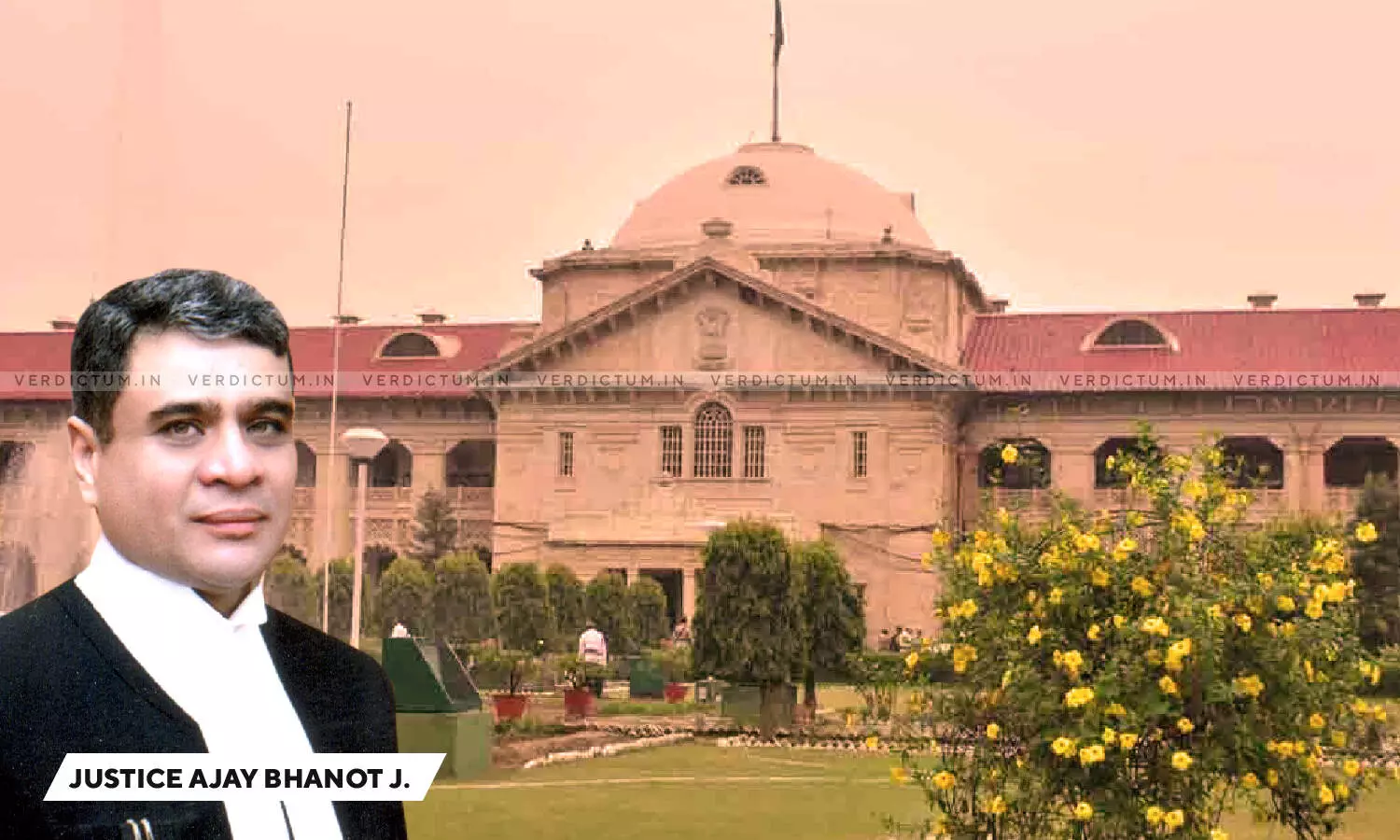
Justice Ajay Bhanot, Allahabad High Court
Allahabad High Court Directs UPSRTC MD To Sensitise Officers & Ensure Full Implementation Of RPwD Act
 |
|Despite multiple medical boards confirming the petitioner’s 40% permanent disability and recommending light duties, UPSRTC failed to assign him suitable work.
The Allahabad High Court tinstructed the Managing Director of the Uttar Pradesh State Road Transport Corporation (UPSRTC), Lucknow, to take concrete steps to ensure that all officers within the Corporation are properly sensitized to the rights of persons with disabilities.
The case involved an employee of the Uttar Pradesh State Road Transport Corporation (UPSRTC) who had acquired a disability during the course of his employment and was subsequently denied any work or suitable posting by the Corporation.
A Bench of Justice Ajay Bhanot directed, “The Managing Director, U.P. State Road Transport Corporation, Lucknow shall ensure that all officers are duly sensitized to the rights of persons with disabilities under the Disabilities Act and the legislative intent of the Disabilities Act is brought to fruition by faithful implementation of the Rights of Persons with Disabilities Act, 2016 in the respondent Corporation.”
Advocate Santosh Kumar Mishra appeared for the Petitioner and Advocate Sheo Ram Singh appeared for the respondents.
Background
The petitioner, an employee of UPSRTC, became disabled while still in service and formally requested that he be assigned light duty, as he was no longer able to perform physically demanding tasks. A medical board constituted by the Chief Medical Officer (CMO) of Hamirpur evaluated him and determined that he suffered from 40% permanent disability in his left arm and leg, based on government guidelines notified under the 2016 Act.
Despite this finding, the CMO, in a letter to UPSRTC, described the disability as "temporary and curable," but nevertheless recommended that light work be assigned to the petitioner. The petitioner was later re-evaluated by another medical board in Lucknow, which confirmed the earlier diagnosis and reiterated the recommendation for lighter duties.
When UPSRTC failed to assign any duty or post to the petitioner, he approached the High Court. Following a prior court direction to decide his pending application, the Corporation rejected his request. This led the petitioner to file a fresh petition before the High Court.
As an interim measure, the Court ordered a third medical evaluation by a board at King George's Medical University, Lucknow, which again affirmed the previous findings and recommendations.
Findings
The Court stated that Section 33 is central to the implementation of the Act within institutions like UPSRTC. It emphasized that identifying posts that align with various categories of disabilities is essential so that individuals with such disabilities can perform job responsibilities effectively without impediments.
The Court further explained that creating an inclusive work environment free from discrimination depends upon the proper identification of suitable posts. Failure to comply with these statutory obligations not only breaches Section 33, but also leads to violations of Sections 20 and 21, thereby denying rightful opportunities and protections to persons with disabilities.
The Court noted, “When the respective disability ceases to be a factor in the efficient execution of the identified post, the person with disability realizes his/her true potentialities and the legislative object of the Disabilities Act is fully realized. The said identification of posts for persons with disabilities is indispensable for the creation of a discrimination free work environment for persons with disabilities.”
The Court ordered UPSRTC to immediately assign the petitioner light duties appropriate to his condition. It also directed the Corporation to pay all pending salary arrears along with interest at 7%. Furthermore, if the arrears were not paid within four months from the date the order was received, the Corporation would be required to pay an additional penalty of ₹50,000 to the petitioner.
Cause Title: Muhammad Naeem v. State Of Uttar Pradesh & Ors., [2025:AHC:108031]